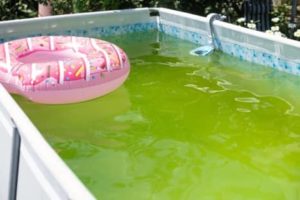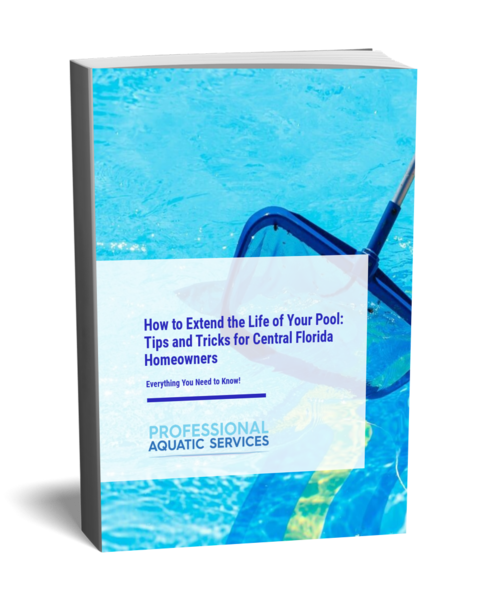Suppose you are a pool owner, especially in areas prone to extreme weather conditions. In that case, it’s tough to see your swimming pool ruins after a hurricane and anticipate pool restoration immediately. As you see falling debris, grime, and leaves accumulate in your pool, you may wonder how to return your pool to its pre-hurricane state. Indeed! Keeping your pool clean and safe may be difficult, especially after havoc from a hurricane. Still, with the proper knowledge and professional help, you can restore its condition in no time.
When it comes to pool repair (when necessary) and cleaning are not as simple as ABCs. Different pool materials require unique approaches and products for pool restoration. At the same time, you must observe cleaning methods to avoid further damage to the pool. That is why, as a pool holder, you should know what you must do (and avoid) when cleaning and repairing your pool after a hurricane.
Table of Contents
TogglePool Restoration After the Storm
Be guided on what to do and what not to do for your pool restoration with this quick guide:
Draining your pool is not recommended.
Please don’t fool yourself into thinking that emptying a dry pool will be easier than it is. If you empty your pool, the foundation of your pool will suffer significant structural damage. When the ground becomes saturated with water, there are high water levels or excess water that may burst out in an empty pool. It’s rational to expect that there would be high groundwater levels or extra water in the soil after a hurricane or severe rain event. It is best to leave it as it is and call a professional for advice.
Remove the dirt from your pool and look for damage.
Before you can start pool restoration, you must clear the pool of any dirt and debris that have accumulated in it. It includes leaves, twigs, branches, and any other rubbish. Once you have drawn out all the visible dirt from the pool, you must inspect it for any damage. Look for cracks, holes, an area that needs pool tile replacement, and any other structural damage that may have occurred during the hurricane. Do not do any DIY pool renovation schemes or fixes. Instead, consult pool repair professionals to help you with the evaluation and repair.
Clean your pool filter and pump.
After removing all the dirt and debris from your pool, it’s time to clean your pool filter and pump. These are two essential parts of your pool system, and they need to be in good working condition for your pool to be clean and safe.
- To clean your pool filter, you will need to backwash it. It’s a method of reversing the flow of water through the filter to remove any dirt and debris that may trap it.
- To clean your pool pump, you will need to disassemble it and clean all the parts. It includes the impeller, the basket, and the O-rings.
Remember never to use chemicals to clean your pool filter or pump. Chemicals can damage these parts and make them less effective.

Shock your pool when necessary
If your pool is green, cloudy, or has an unpleasant odor, it may be necessary to shock your pool. By doing shock to your pool, it will kill any bacteria or algae that may be present in the water.
You must add a substantial amount of chlorine to the water in shocking your pool. The quantity of chlorine you will need to add will depend on the size of your pool. Best to consult a pool professional to get the correct measurement.
After you have added the chlorine, you will need to circulate the water for at least 24 hours. It will allow chlorine to kill any bacteria or algae in the pool. Once the pool has been shocked, you will need to test the water to ensure it is safe to swim in.
Restore power and repair the pool equipment (if necessary)
Please do not turn the electricity back on without removing all plastic coverings from your equipment and inspecting it for any signs of water damage. If everything appears dry, with no apparent water damage, you may turn the power back on and begin operating your pool pump.
If there is any water damage or flooding mark, wait until your pool professional or a licensed electrician has evaluated the situation. They will arrive at your home and examine your equipment to prevent potential injuries and significant equipment damage.
Always Refer to Professionals
Even if you are comfortable doing some of the work yourself, it is always best to refer to professionals regarding pool restoration after a hurricane. Many potential hazards can occur during pool renovation and restoration, so it is vital to be apprehensive of them and take the necessary precautions. Working with electricity, using chemicals, and dealing with structural damage are all tasks only professionals can do.
So, contact Professional Aquatic Services if you are unsure about something or want peace of mind. They’ve worked on pools of all shapes and sizes, doing pool resurfacing and restoration. They’ll know what to do to get your pool back to its original condition in no time.

